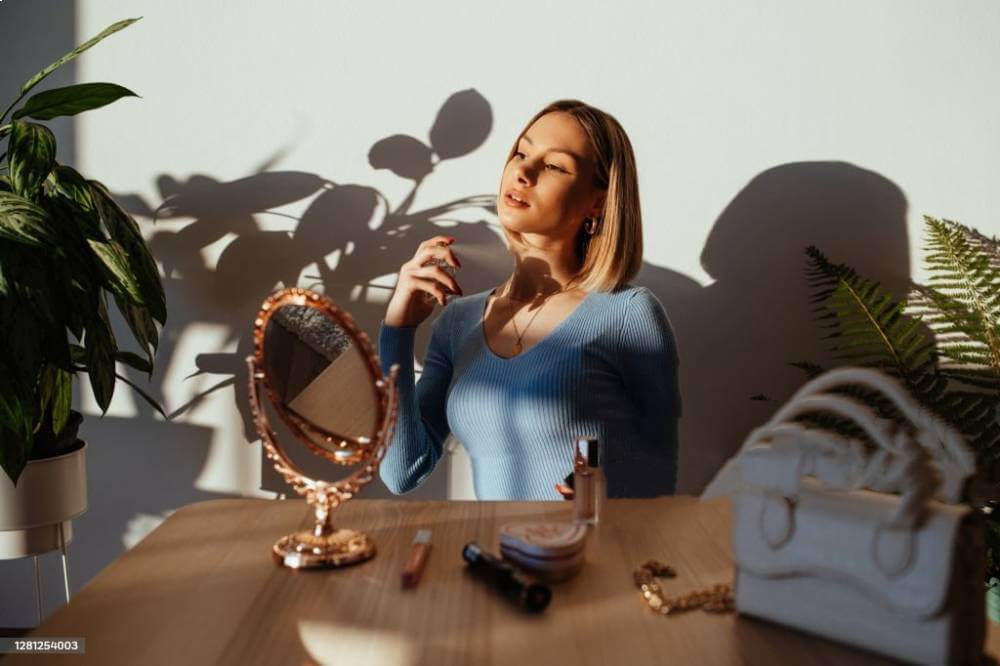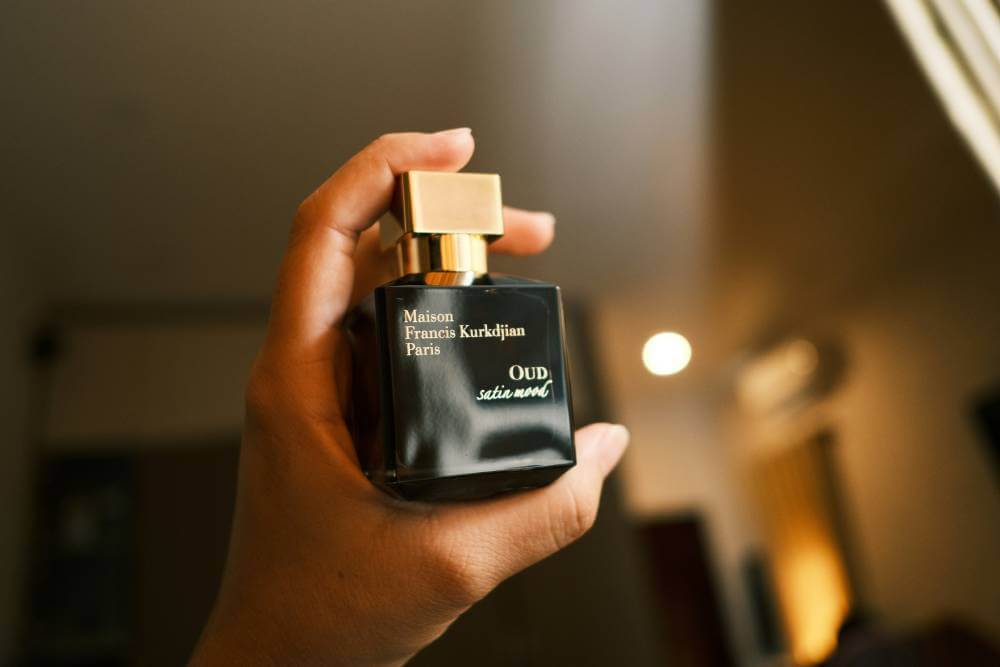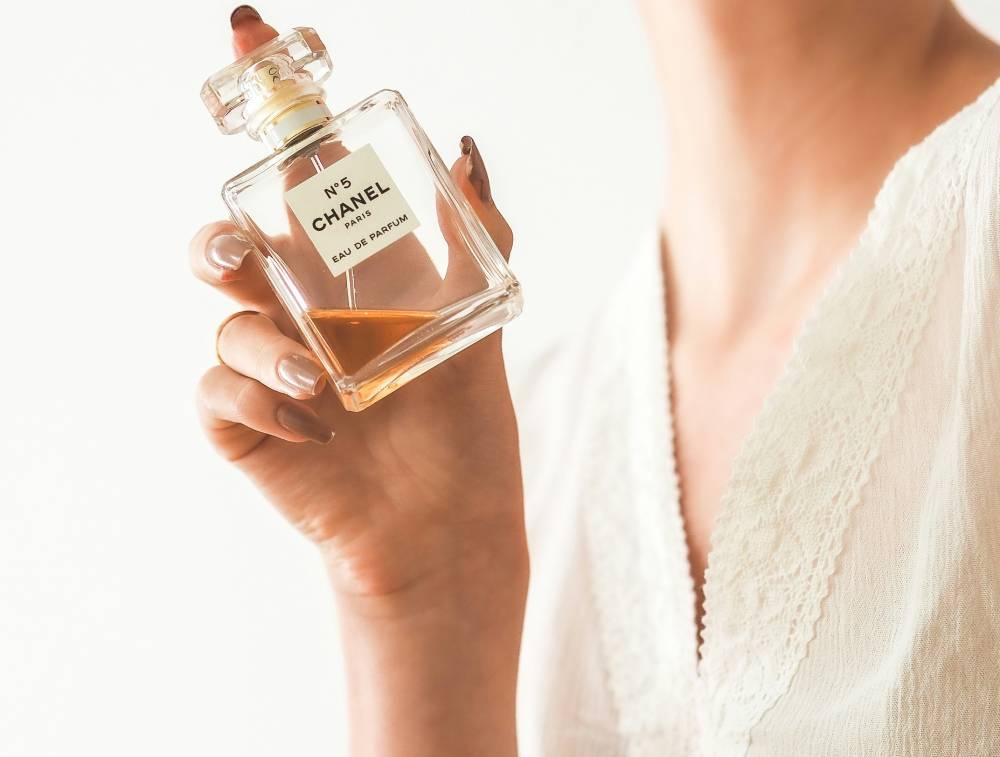If you’ve had a fragrance for years, you may have noticed it’s lost its oomph or started to smell off. These are signs your perfume is getting old, as perfume does go off over time. So, does perfume expire? Does cologne go bad? Yes, it can, but there are ways to make it last longer.
The quality of the fragrance, the scent family, and how you store it can make a big difference in how long it lasts.
In this post, we’ll cover everything you need to know about the longevity of perfume and cologne, how to tell if your fragrance has gone off, and how to store it properly.
Does Perfume Expire?
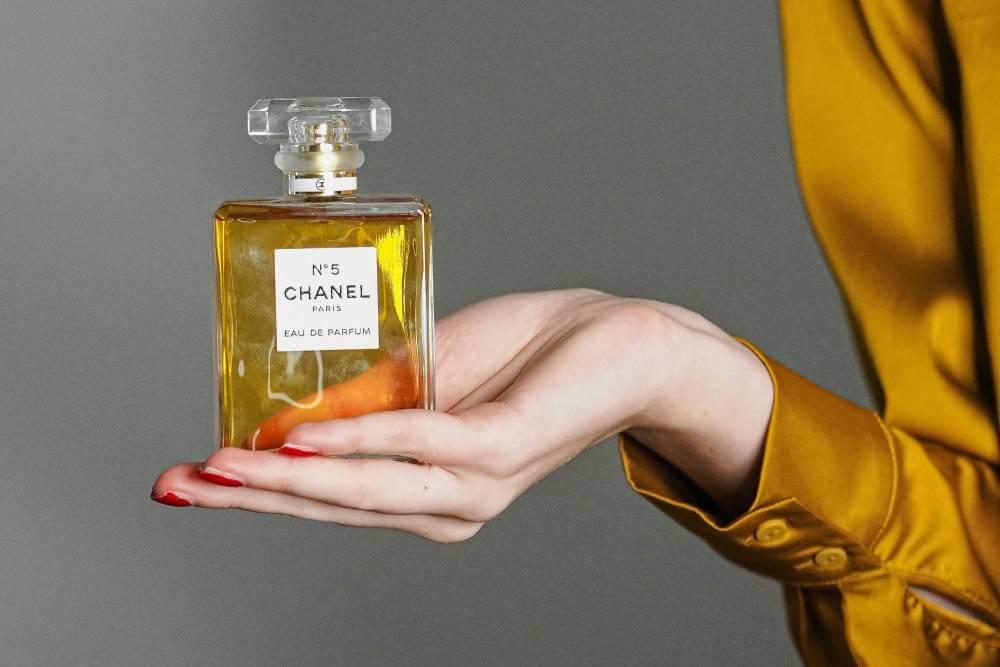
Yes, perfume and cologne can go bad. But their longevity depends on the scent’s chemical composition. Many perfumes, especially from big brands like Chanel or Marc Jacobs, don’t have an expiration date. Some fragrances can go bad in less than a year, while others can last up to 10 years. On average, a fragrance can last 3 to 5 years.
Fragrance Composition
Perfumes with heavier base notes last longer. Oriental scents, which often have notes like patchouli and amber, are known for their longevity and depth. They’re like fine wine, and they get better with age. Scents with notes like patchouli, amber, and sandalwood are known for their longevity and depth. I personally find these richer scents develop more complexity over time and are even more enjoyable to wear.
On the other hand, fragrances with lighter base notes are more volatile. Citrus, green, and floral perfumes, for example, are shorter-lived. While these scents can be refreshing and uplifting, they don’t hold up as well over time, especially when exposed to heat or sunlight.
What is Perfume Expiration?
Perfume expiration means the gradual breakdown of a fragrance’s chemical composition over time, resulting in changes in its scent, appearance, and overall quality. This degradation can be caused by several factors, including light, heat, air, and moisture. The quality of ingredients used in the fragrance formulation also plays a big role. High-quality perfumes, especially those with natural essential oils, last longer than those with synthetic ingredients. Understanding perfume expiration is important so that you can always enjoy your favorite scents at their best.
Signs Your Perfume Has Gone Bad
If your perfume does go bad, using it can result in unpleasant smells, skin irritations, or, in extreme cases, an allergic reaction. Signs that your perfume has gone bad include a change in color, a sour or off smell, or liquid separation. If your perfume is more than a couple of years old, it’s best to test it before applying it to your skin.
I’ve pulled out an old favorite a few times, and it no longer smells like I remember. It’s unpleasant, but it’s a reminder of proper storage and regular use.
My Personal Tips for Fragrance Longevity
Rotate Your Scents: If you have multiple perfumes, try rotating them. Rotating your scents can also help you find your signature scent, a fragrance that becomes part of your daily routine. This way, you get to try different scents, and none of them sit unused for too long.
Sample Before Committing: When trying new fragrances, consider buying smaller sizes or samples first. This way, you can test how the scent evolves on your skin over time without committing to a full bottle that may go bad before you finish it.
Log Your Scents: If you’re a perfume junkie, consider logging your scents. Note how you store them when you buy them and your thoughts on their longevity. This will help you know which scents you love and which need to be replaced.
Perfume Shelf Life Factors
Perfume shelf life is determined by a combination of its chemical composition, storage conditions, and handling practices. By knowing these factors, you can extend the life and quality of your perfume.
Environmental Factors and Ingredient Quality
Environmental factors such as temperature fluctuations, humidity, and exposure to light can greatly affect perfume shelf life. Perfumes stored in a cool, dark place last longer than those exposed to direct sunlight or heat. Humidity can also affect the fragrance, as moisture can alter the scent’s chemical composition.
Another big factor is the quality of the ingredients used in the fragrance formulation. Perfumes made with high-quality natural essential oils last longer than those with synthetic fragrances and preservatives. Natural ingredients are more stable and less prone to degradation, so your perfume stays fresh and potent for a longer time.
3 Ways to Know If Your Perfume Is Gone Bad
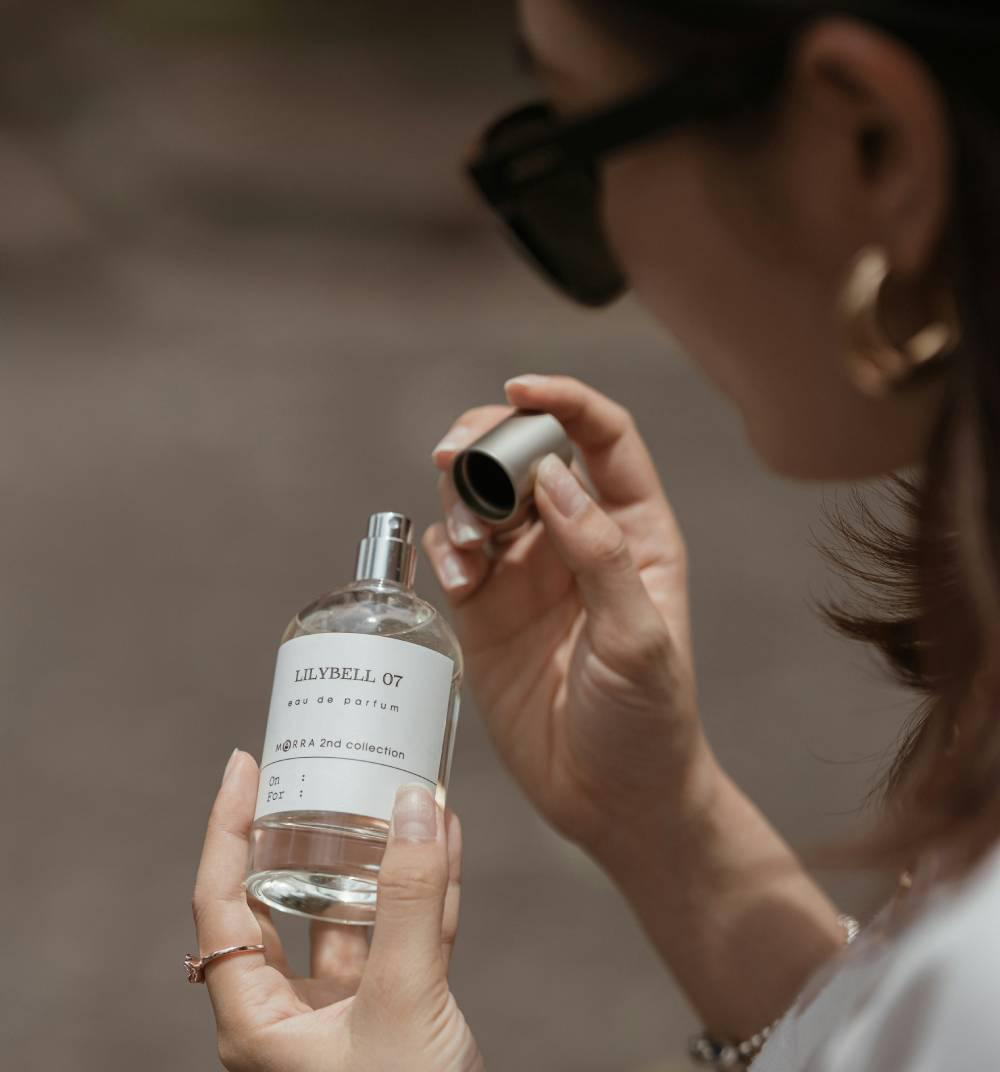
If you’re asking, “How long does perfume last?” Unopened perfumes can last longer than opened bottles when stored properly. You can check if your particular perfume is expired by checking its scent, appearance, and any expiration dates that may be included. As I mentioned earlier, many people think if the perfume still smells good, it’s not expired, even if it smells slightly different from when they first bought it. But others may find it hard to tell if a fragrance has gone bad.
Sniff Test
The most obvious way to know if your perfume has gone bad is to test its scent. Fragrances change over time, and this is often the first sign of expiration. Some perfumes may have vegetable oils, which expire and can cause unpleasant odors. Perfumes with no fats, like those made from essential oils, are generally considered the longest-lasting perfumes.
If you decide to wear a perfume that may expire, do a patch test first to avoid skin irritation.
When testing your fragrance, look out for the following:
Vinegar-like Odor: If your perfume or cologne smells like vinegar, it’s a strong sign that it’s expired. This sour smell means the fragrance has broken down and is no longer safe to use.
Change in Concentration: Noticeable change in the original scent can also mean your perfume has gone bad. If the fragrance smells weaker or less potent than when you first bought it, it’s time to say goodbye.
Big Scent Difference: If the scent is significantly different from what you remember, it’s likely expired. A perfume that has changed its aroma may not only smell bad but can also cause skin irritation or allergic reactions.
When testing your perfume, try to do it in a well-ventilated area so you won’t be overwhelmed. Sometimes, the first sniff can be misleading, so give it a minute to settle before making a judgment.
Check How It Looks: Does Your Perfume Look the Same?
Another way to test your perfume is to check its color. The color of your fragrance can give you clues about its condition. A perfume that has darkened in color from when you first bought it could mean it’s gone bad.
Color Change: If you started with a clear or transparent gold liquid and now it’s more opaque or has turned amber, this could be a sign it’s expired. This often happens due to chemical reactions over time, especially if the perfume has been exposed to light or heat.
Evaporation of Alcohol: Over time, scents with high alcohol concentrations may evaporate, changing the scent and the liquid level in the bottle. If you notice your perfume bottle is less full than when you last checked, it could be a sign that the fragrance has gone bad.
Personal Experience
In my experience, color change can definitely indicate a fragrance’s lifespan. I had a beautiful floral perfume that I loved, and after a few years, I noticed it darkened a lot. When I finally tested it, the scent was off, and I was proven right.
When checking the color, hold the bottle to a light source to see better. This will help you see any subtle changes that are not visible at first glance.
Check the Expiration Date on the Packaging
One of the easiest ways to know if your perfume is expired is to check the expiration date on the packaging. Many perfumes have some form of expiration information, either a batch code or a PAO (Period After Opening) number. These are usually found at the bottom of the perfume bottle or on the box it comes in.
What are the Codes?
Batch Code: The batch code is an identification code that indicates when and where a perfume was made. Perfume companies use these codes for quality control to identify and remove bad batches from the market. All original branded perfumes should have their own unique batch code.
The batch code can vary in format but usually has 3 to 12 numbers and may include letters. These codes are different from other numbers on the packaging as they are applied to the already printed package during distribution. Here are a few examples of batch codes from well-known brands:
Chanel: 5002
Christian Dior: 1N03
David Beckham: L1 0759086986
To make it easier, websites like CheckFresh have a drop-down menu where you can select the designer of your perfume. You can then enter the batch code to find out exactly how old your fragrance is.
PAO Number: On your perfume packaging, you may also find a small open jar symbol with a number beside it. This number indicates the number of months you can use your perfume after opening before it expires.
The recommended usage time is usually 30 months after opening. So, after two and a half years, you should test your fragrance to see if it’s still good.
When looking for these codes, make sure to examine your perfume packaging. Some brands have more hidden codes, so take a moment to check the entire box or bottle.
Perfume Types and Expiration
Perfumes have different expiration rates depending on their concentration of essential oils, fragrance notes, and preservatives. Knowing these differences will help you choose the right perfume and care for it better.
Eau de Toilette vs Eau de Parfum
Eau de Toilette (EDT) and Eau de Parfum (EDP) are two types of perfumes, each with its own characteristics. EDT has 5-15% essential oils, so it’s lighter and for everyday use. EDP has a higher concentration of essential oils, 15-25%, so it’s more intense and long-lasting.
Because of its higher concentration of fragrance oils, EDP has a longer shelf life than EDT. However, both types of perfumes can expire if not stored properly or if they contain low-quality ingredients. When choosing a perfume, consider the type of fragrance you prefer and the expiration rate. Proper storage and handling, such as keeping the perfume in a cool, dark place and tightly sealing the bottle, will help extend the life of your perfume regardless of the type.
How to Store Perfume?
Storing your perfume properly is crucial if you want it to last as long as possible. The way you store a fragrance can affect its longevity and overall quality. Here are some tips to keep your favorite scents fresh and potent:
1. Avoid Temperature Fluctuations
One of the most important things about preserving your perfume is keeping it away from temperature fluctuations. You might be tempted to store your perfume in the bathroom, but the hot and cold temperature changes from showers can actually make your perfume expire faster.
Humidity Matters: Humidity can also affect the chemicals inside the bottle and change the scent and quality. So, store your fragrances in a cool, dry place, especially the ones you wear in summer.
2. Keep Away from Direct Sunlight
Direct sunlight is bad for your perfume. The heat from the sun breaks down the chemical structure of the fragrance, causing it to lose its potency and alter its scent profile.
Dark Storage: To protect your perfume from light exposure, store it in a dark drawer or closet. This will preserve the integrity of the fragrance and ensure that it smells as intended.
3. Avoid the Fridge
You might think storing your perfume in the fridge is a good idea to keep it cool, but this can actually cause problems. When you remove the perfume from the fridge, temperature fluctuations can be as damaging as heat exposure.
Stable Environment: Instead, look for a stable environment that is cool but not cold. A bedroom drawer or a closet is often the best place to store your fragrances.
4. Keep It in the Original Container
Keep it in the original container. Air can upset the fragrance’s chemical balance and make the alcohol inside evaporate faster, shortening its lifespan.
Seal It Up: Make sure the cap is tightly closed after each use to minimize air exposure. This simple step can help preserve the scent and prevent it from deteriorating over time.
How to Replace Your Expired Perfume?
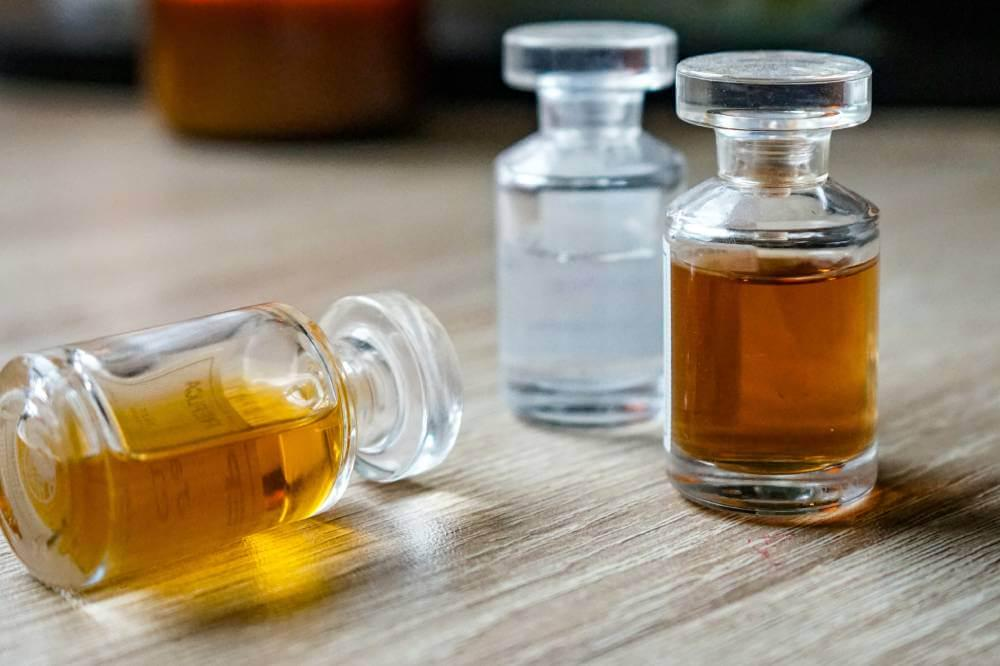
Determining if your perfume is expired can be tricky. If your fragrance is more than 2 1/2 years old, test it for signs of expiration. But if your perfume still smells good and has the same color and consistency as when you bought it, then it’s safe to use. Some high-quality perfumes can last for years if stored properly, so it’s best to assess each fragrance individually.
Buying a New Fragrance
When it’s time to replace your expired perfume, you have plenty of options for finding a new scent that fits your style.
Online Discounts: You can buy perfumes and colognes at discounted prices online. Many reputable retailers offer sales, promos, and even clearance items so you can get high-quality fragrances at a fraction of the original price. FragranceNet, Sephora, and Ulta often have great deals. Online shopping for discounts has been a game changer for me. I found some amazing deals on high-end perfumes that I wouldn’t have splurged on otherwise.
Sample Sizes: Buy sample sizes or travel versions of fragrances before committing to a full bottle. This way, you can test how the scent develops on your skin without wasting money on a fragrance you might not love.
Read Reviews: Before you buy, read reviews from other customers. This will give you valuable information on the longevity, sillage, and overall quality of the fragrance.
Visit Stores: If you can, visit a local fragrance store to test scents in person. This will allow you to see how the fragrance interacts with your body chemistry, which can affect how it smells on you.


